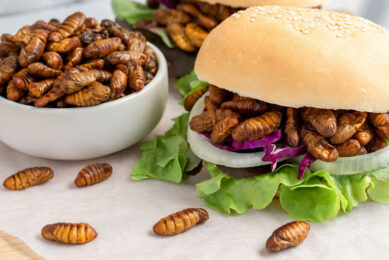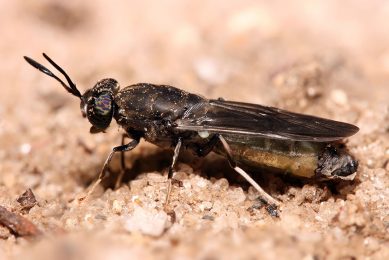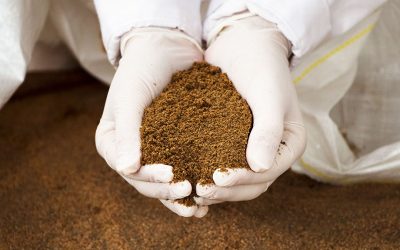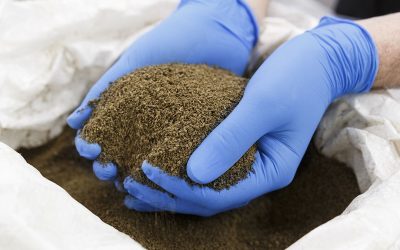Are insects and microalgae the broiler feed of the future?
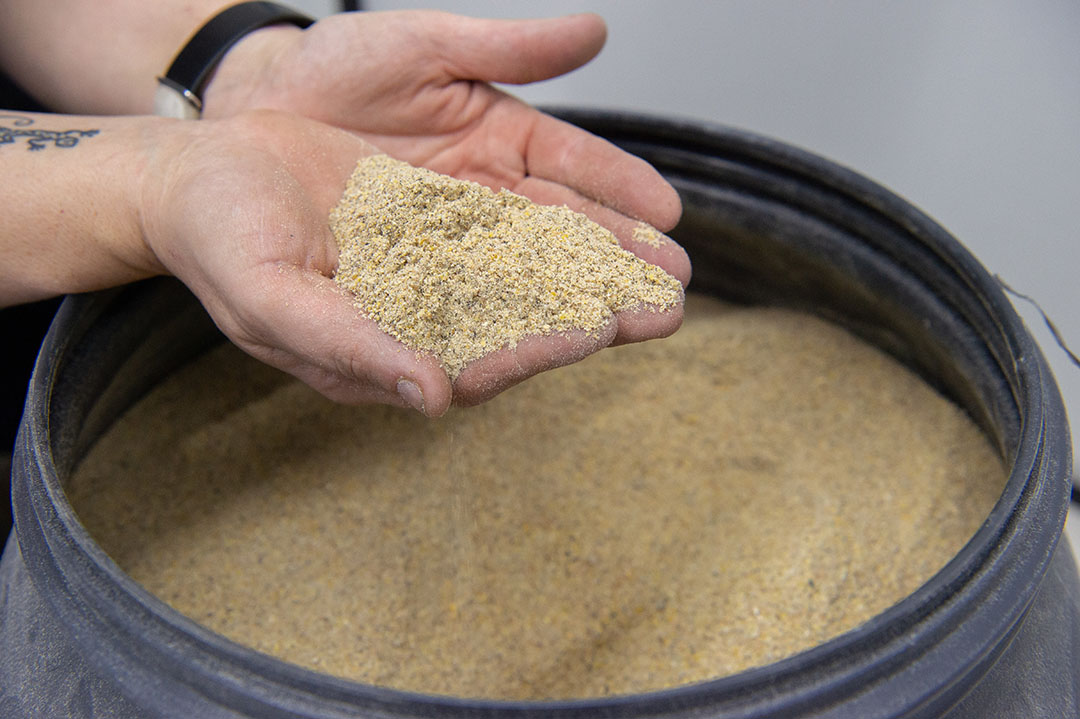
Investigations into the feeding of insects and microalgae to broilers has found that both sources of protein represent a suitable sustainable alternative to soymeal.
The Germany study, carried out by researchers from the University of Gottingen, found that meat quality of chickens fed with certain insects or microalgae was suitable for human consumption.
Despite vegan and vegetarian diets becoming increasingly popular in Western Europe, worldwide there is growing demand for animal products for human nutrition, which takes up a considerable amount of high-protein feed for farm animals. However, the cultivation of animal feed is often accompanied by land-use changes such as deforestation and scientists are therefore looking for future feed to be independent of arable land.
…sustainability necessitates the incorporation of waste products in the production of insects.”
The research team looked at what happened when broiler chickens were fattened using feed with the main protein sources being soybean meal, spirulina, or insects. Animal growth, meat quality (in particular shelf life) and eating quality were investigated. Their results of laboratory testing and sensory (taste testing) across 132 broilers found:
- Black soldier fly larvae meal and spirulina can be included in poultry feed without negatively impacting quality
- Chickens fed with black soldier fly larvae meal produce meat equivalent to the status quo
- Chickens fed with spirulina produce meat with a more intensive colour and flavour
Dr Brianne Altmann, lead researcher, said: “Overall, both prove to be potential soybean meal alternatives in the search for new protein sources for animal feed.”
 Insect Protein:
Insect Protein:
The popularity of insect meal as a new protein has taken off – find out about new developments, regulations and innovations.
Microalgae ware currently produced globally for biofuel, animal feed and human consumption but remain much more expensive than soybean meal. Currently, in the European Union, insects are only authorised for human consumption and for fish feed but are likely to be approved for poultry feed in the near future. Professor Daniel Morlein, professor for the Quality of Animal Products at the University, added that in the EU all insects must be produced using certified animal feedstuffs: “However, sustainability necessitates the incorporation of waste products in the production of insects,” he argued.
The research has been published in the Journal of the Science of Food and Agriculture and is part of the project ”Sustainability Transitions in the Food Production.”




